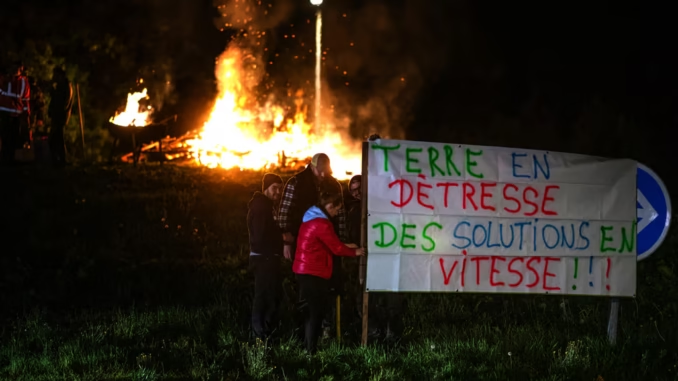
European farmers are expressing strong opposition to the EU-Mercosur trade agreement, fearing it could harm their livelihoods. This trade pact, set to conclude after 25 years of negotiation, would create a free-trade area encompassing 800 million people across Europe and South America. Mercosur nations, led by Brazil, are global leaders in beef, soybeans, and cereals, benefiting from cheap land and favorable climates. European farmer unions argue that these imports, produced under lower environmental and food safety standards, will undercut local producers and threaten small farms.
Protests are intensifying in France, where farmer groups like FNSEA are pressuring President Emmanuel Macron to block the deal. Similar discontent is brewing in Belgium, Italy, Poland, and other countries. However, proponents of the agreement highlight benefits for Europe’s agricultural sectors, including pigmeat, dairy, and processed food products like beverages and preserves. They argue that the deal could boost exports while maintaining strict import quotas and safeguards for local producers.
The debate underscores broader tensions between trade liberalization and protecting traditional farming livelihoods amidst shifting EU priorities toward green and digital transitions.
NEWS DESK
PRESS UPDATE
